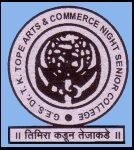North Korea – Kim Jong Nam
Kim Jong-nam was the eldest son of North Korea’s former leader Kim Jong-il and the half-brother of the country’s current leader, Kim Jong-un. His life and death are shrouded in intrigue and mystery. Here’s an overview:
अनुक्रमणिका
Early Life
Born on May 10, 1971, Kim Jong-nam was initially considered the heir apparent to his father and was groomed for leadership. He was educated in international schools in Switzerland and Russia.
Falling Out of Favor
Kim Jong-nam fell out of favor with his family’s regime after a widely publicized incident in 2001, where he was detained in Japan using a forged Dominican Republic passport. He reportedly told the Japanese authorities that he wanted to visit Tokyo Disneyland. This incident was highly embarrassing to the North Korean leadership, and it led to him losing his status as the chosen successor.
Life in Exile
After that, Kim Jong-nam lived mostly in exile, spending time in Macau, Singapore, and China. He was known to have a somewhat flamboyant lifestyle, and there were reports of him frequenting casinos and other entertainment venues. During his time in exile, he was reportedly under Chinese protection.
Criticism of North Korean Regime
Kim Jong-nam was somewhat outspoken about his criticism of North Korea’s dynastic succession and his country’s regime. He expressed doubts about his half-brother’s ability to maintain leadership and criticized the lack of reforms in the country.
Assassination
On February 13, 2017, Kim Jong-nam was assassinated at Kuala Lumpur International Airport in Malaysia. Two women approached him, and one of them smeared a cloth containing the VX nerve agent on his face. He died within 20 minutes.
The two women, from Indonesia and Vietnam, were arrested and charged with murder but maintained that they believed they were participating in a prank for a reality TV show. In a widely-publicized trial, the charges against them were eventually reduced, and both were released.
Speculation and Theories
The assassination led to significant international attention and strained relations between North Korea and Malaysia. While North Korea has denied any involvement, many experts believe that the order for the assassination came from Pyongyang. The motive remains a subject of speculation, with theories ranging from Kim Jong-nam’s criticism of the regime to fears that he might be used by outside powers as a potential replacement for Kim Jong-un.
Conclusion
Kim Jong-nam’s life was marked by a dramatic shift from a privileged position within the North Korean leadership to a critic living in exile. His assassination remains one of the most mysterious and controversial events in recent history, reflecting the often opaque nature of North Korean politics and international relations.
North Korea
North Korea, officially known as the Democratic People’s Republic of Korea (DPRK), is a fascinating and enigmatic country. Here’s a comprehensive look at the nation, covering various aspects of its history, politics, economy, society, and international relations:
1. Geography:
North Korea is located on the Korean Peninsula, bordered by China to the northwest, Russia to the northeast, and South Korea to the south. It has coastlines on the Yellow Sea and the Sea of Japan.
2. History:
- Japanese Occupation (1910-1945): Korea was annexed by Japan in 1910 and remained under occupation until the end of World War II.
- Division and Korean War (1945-1953): After WWII, Korea was divided along the 38th parallel, with the Soviets occupying the north and the Americans the south. This division led to the Korean War (1950-1953), which ended in an armistice, not a formal peace treaty. The Korean Demilitarized Zone (DMZ) remains a heavily fortified border.
3. Political System:
- Leadership: North Korea is a single-party state, ruled by the Workers’ Party of Korea (WPK). The country’s founder, Kim Il-sung, his son Kim Jong-il, and grandson Kim Jong-un have maintained a dynastic leadership.
- Juche Philosophy: The state ideology is based on “Juche,” emphasizing self-reliance and national sovereignty.
- Human Rights: North Korea has been criticized for its human rights record, including issues like political repression, forced labor, and restricted freedoms.
4. Economy:
- Central Planning: The North Korean economy is heavily centralized and state-controlled.
- Agriculture and Industry: Despite its mountainous terrain, agriculture plays a significant role. Key industries include mining, metallurgy, and military production.
- Sanctions and Economic Challenges: International sanctions have hit the economy hard, leading to chronic shortages and economic difficulties.
5. Society and Culture:
- Propaganda and Control: The state controls information, media, and education, promoting a strong nationalist and ideological narrative.
- Healthcare and Education: Healthcare and education are provided by the state but face significant challenges.
- Cultural Heritage: Traditional Korean culture, arts, and music are preserved but are often portrayed through the lens of state ideology.
6. Military:
- Large Standing Army: North Korea maintains one of the largest standing armies in the world.
- Nuclear Program: The country’s development of nuclear weapons has been a significant international concern and a central issue in diplomatic negotiations.
7. International Relations:
- Relations with South Korea: Inter-Korean relations have seen periods of both thawing and tension.
- Relations with Other Countries: North Korea has complex relationships with countries like China, Russia, the USA, and Japan. China is its largest trading partner and a key ally.
8. Tourism:
- Controlled Tourism: Tourism is permitted but highly controlled, with guided tours showcasing selected parts of the country.
North Korea’s isolation and unique political system make it one of the world’s most mysterious countries. Its dynamics with South Korea, nuclear ambitions, and human rights issues continue to be focal points in international relations.
![]()
